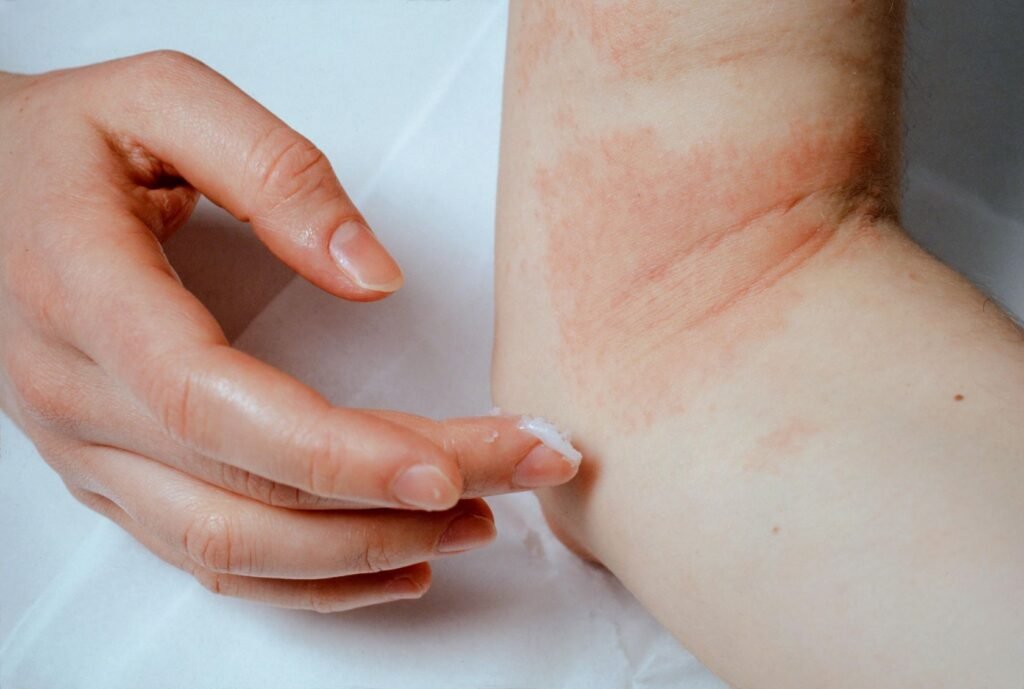Managing Psoriasis: A Guide to Crafting the Perfect Skincare Routine
When it comes to skincare, there’s no universal solution, especially for individuals dealing with skin conditions like psoriasis. Finding a routine that hydrates and heals without exacerbating flare-ups is essential for maintaining skin health.
Understanding Psoriasis
Psoriasis is an autoimmune disorder characterized by inflamed, flaky patches of skin. Although not contagious, it can cause physical discomfort and emotional distress. August is Psoriasis Action Month, making it the perfect time to explore effective management strategies.
Less is More: Start Simple
One common reaction to the onset of psoriasis is the urge to dramatically revamp your skincare regimen. However, experts recommend taking a more measured approach. Tipper Lewis, a naturopathic herbalist at Neal’s Yard Remedies, notes:
“When the skin becomes imbalanced, it can be tempting to introduce numerous products at once. Simplifying your routine may be precisely what your skin needs—it’s like giving it a holiday.”
Prioritize Skin Barrier Restoration
The first step is to restore and protect the compromised skin barrier. Dermatologist Dr. Mazin Al-Khafaji emphasizes:
“Over-washing or using unsuitable products can worsen the condition.”
What to Avoid
Navigating product labels can be exhausting. Here are some ingredients to steer clear of:
- Synthetic Fragrances
- Harsh Exfoliators
- Foaming Cleansers with Sodium Lauryl Sulfate (SLS)
Instead, focus on barrier-supportive ingredients like:
- Ceramides
- Aloe Vera
- Chamomile
Opting for certified organic skincare can further minimize exposure to irritants commonly found in many products.
Bathing Benefits
Incorporating bath remedies can offer relief. Lewis suggests a salt bath using:
- 500g Epsom Salt
- Natural Sea Salt
Consider adding a herbal infusion like chamomile or lavender for added soothing benefits.
Exfoliation: Handle with Care
While it may seem reasonable to scrub away thick plaques, experts counsel caution. Lewis recommends:
“Using a massage mitt made from flax or hemp fiber gently brushed over the skin.”
Dr. Al-Khafaji prefers avoiding physical exfoliation altogether, as it can lead to skin trauma and trigger new lesions. Instead, he suggests gentle chemical exfoliants like fruit acids, applied carefully and followed up with a rich emollient.
Seasonal Adjustments
The weather can significantly affect the severity of psoriasis symptoms.
Summer
- Increased UVB exposure and humidity often provide relief.
- Spending time outdoors may reduce stress, which positively affects skin health.
Winter
- Cold, dry air typically worsens symptoms.
- Use richer creams and consider employing a humidifier to mitigate dryness.
Lifestyle Tweaks
Certain habits might inadvertently worsen your condition:
- Over-washing the skin
- Prolonged use of prescription steroids
Dr. Al-Khafaji notes that while topical steroids can reduce inflammation temporarily, they do not address the underlying causes of psoriasis. This can lead to rebound flares.
Stress Management
Stress can also aggravate symptoms. Lewis recommends:
- Herbal Tea: Consider soothing varieties like chamomile.
- Essential Oils: Use a diffuser with calming scents like bergamot or lavender.
Natural Doesn’t Always Mean Best
While adjusting your routine, be cautious of certain “natural” products.
“High concentrations of essential oils or generic herbal creams can worsen the condition,” says Dr. Al-Khafaji.
The Bottom Line
While adjustments to your skincare routine can help, they may not completely resolve psoriasis symptoms. This complex condition requires tailored management, and consulting with a dermatologist or healthcare provider is essential before implementing sweeping changes.
For more information on skin health, visit American Academy of Dermatology.
Crafting a skincare regimen that balances healing and protection is vital in managing psoriasis effectively. By understanding your skin’s needs, you can create a routine that provides relief and promotes overall wellness.


